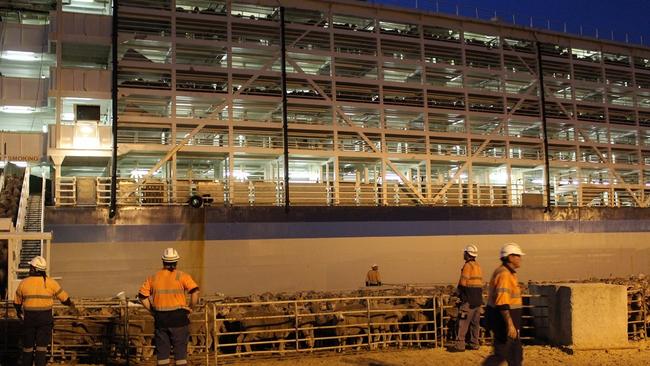Europe a live sheep exporting powerhouse
Europe has been quick to criticise Australia’s animal welfare standards but the continent is home to five of the top 10 largest live sheep exporters in the world.
The European Union is the engine room of the live sheep exporting trade, with five European countries among the largest exporters in the world.
Of the top 10 live sheep exporting nations globally, more than half the trade originates from Romania, Spain, France, Portugal and Hungary.
Many critics of the Albanese government’s election commitment to phase out live sheep exports say Australia’s exit from the industry will leave more sheep open to potentially inhumane treatment in Africa, where little is known of these countries’ animal welfare standards.
Since 2011, when Australia introduced its Exporter Supply Chain Assurance System – following an ABC Four Corners program on the treatment of Australian cattle in Indonesian abattoirs – it has dropped from the second-largest live sheep exporter, to fifth.
In that same period, the trade flow to Europe, namely Romania, Spain, Portugal and Hungary, has risen significantly.
Analysis of Food and Agriculture Organisation of the United Nations’ figures shows Spain’s trade has almost quadrupled since 2011, while Romania has risen from the fourth-largest live sheep exporter to the biggest player in the trade globally, exporting more than 2.25 million sheep in 2021.

The EU has no control system in place for transporting animals to non-EU countries.
The ESCAS regulatory system introduced standards and practices of care for Australian animals exported for slaughter in the areas of health, welfare and slaughter standards.
Despite this, Agriculture Minister Murray Watt said he was left to defend Australia’s animal welfare standards on his most recent trip to Europe in January.
“There’s a general perception that Australia’s sustainability and animal welfare standards aren’t as high as what happens in Europe,” Minister Watt said at the time.
The Nationals party has committed to reinstating the live sheep export trade if returned to power.
“All we would be doing by shutting this down is not only losing 3000 jobs in Western Australia, we’d be exporting animal welfare standards to other countries like Sudan and Ethiopia. And they don’t have our standards,” Nationals leader David Littleproud said.

But Alliance for Animals policy director Jed Goodfellow said justifying Australia’s ongoing participation in a “fundamentally unethical trade” on the basis that “if we don’t do it, someone else will” relies on perverse logic.
“The question for Australia is can we do this in a way that protects animal welfare consistent with our standards and values as a nation,” Mr Goodfellow said.
“History, and the overwhelming science and evidence base, shows that this is not possible.
“Australian sheep continue to suffer heat stress when traversing the equatorial and Middle Eastern regions and are still slaughtered without stunning in the importing countries.”
A European parliamentary inquiry last year called for EU countries to transition to transporting meat and not live animals, and deemed the current rules for EU animal transport rules as outdated and poorly enforced.
Minister Watt told The Weekly Times the live export industry accounts for just 0.1 per cent of all agricultural trade nationally, and only 12 per cent of sheep turn-off in Western Australia goes to live export.
“The rate of live sheep being exported out of Australia has been declining rapidly over the past 20 years. In contrast, sheep meat exports are booming, up from $1 billion to $4.5 billion over the past 20 years,” he said.





